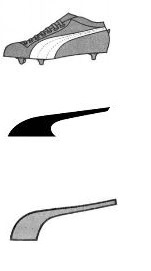Trademark agency Abcor - protect your trademark
Contact
If you have questions or want to know more about our services?Please mail: info@abcor-ip.com
Please call: 31 (0)71 576 3116
In Germany, the comedy Fack Ju Göthe is a huge success. Reason for the producer to claim trademark rights for the title. But the application is refused because it is considered to be offensive for the writer Goethe (who died over 200 years ago). The producer appealed the refusal and the case is now before the European Court. The Advocate General has given an opinion on this (this is often followed).
He indicates that actually two separate assessments ought to be made. Public policy incites objective boundaries, such as violating laws, policies and official statements. The accepted principles of morality have a different angle, here the views of society are important.
The film is very popular in Germany and there has never been any controversy about the title. So there’s a fair chance that social norms are not violated and that the trademark is therefore not in breach of good moral. That would indicate a unjust assessment by the European authorities. Hopefully the Court adheres to this view.
trademark-registration
